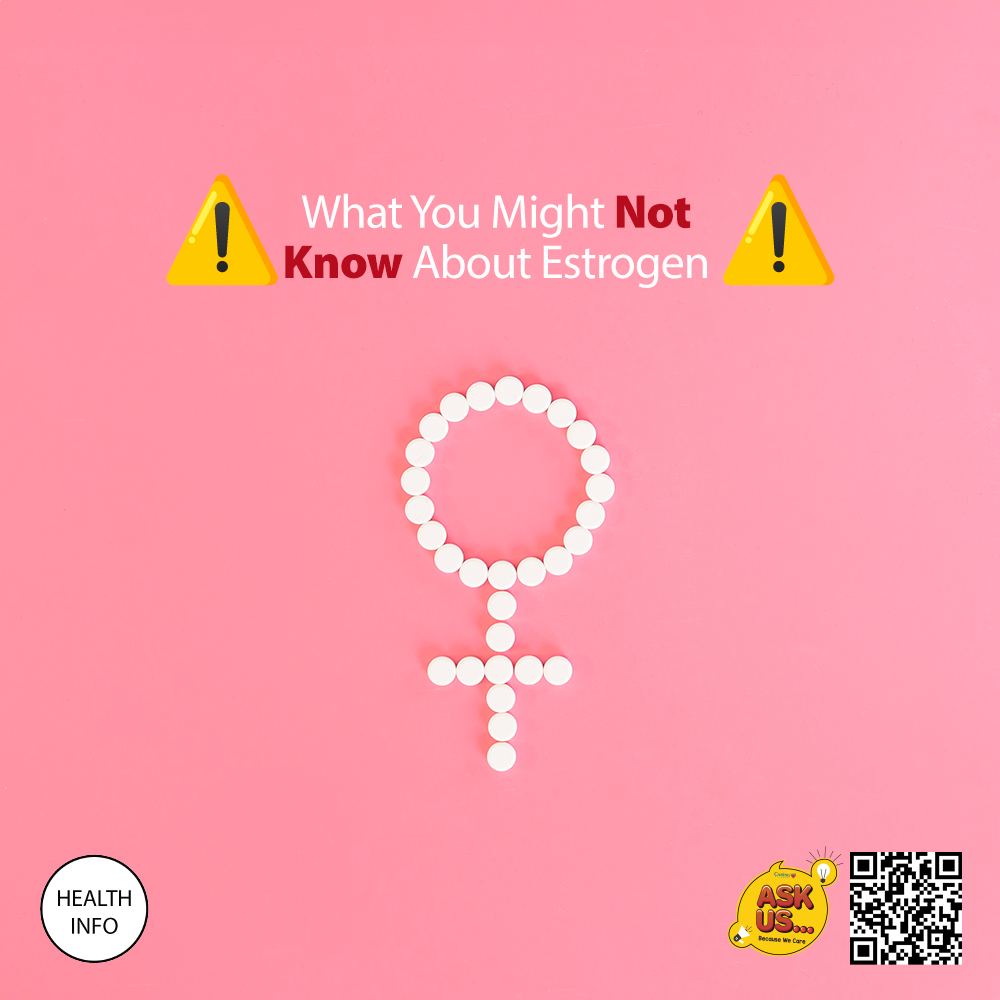- Home
- Health Center
- Health Info
- It’s Time to Talk About Menopause: The Basics
Menopause
It’s Time to Talk About Menopause: The Basics


Menopause is rarely a topic of open discussion — despite the fact that nearly half of the world’s population experiences or will experience this biological transition, which marks the end of a woman’s menstrual cycle and fertility. According to a study, a startling one in four women will experience serious menopause systems. 1
Define menopause
Menopause means the cessation of menstruation (period) for 12 months. 1,2 The menstruation may suddenly cease, gradually decrease or irregular. 2
The usual age of menopause is between the ages of 45 and 55. Nevertheless, it can occur before the age of 40, which known as Premature (early) menopause. 2
Symptoms2
Menopausal symptoms may vary among one another. Some common one includes (but not limited to):
- Hot flushes
- Mood changes
- Vaginal dryness
- Thinning of bone (osteoporosis)
- Loss of skin elasticity
- Dryness of skin
- Increase hair loss
- Prone to have rashes
Is there any treatment available for menopausal symptoms? 2
Improved lifestyle habit will greatly reduce the unpleasant symptoms of menopause. These include :
- Healthy diet
- Avoid smoking
- Regular exercise
- Positive thinking
- Regular pap smear
- Regular breast checks
Your doctor may also recommend Hormone replacement therapy (HRT). HRT can effectively reduce menopausal symptoms especially hot flushes, vaginal dryness and urinary problems. This involves taking oestrogen alone or estrogen combined with progestin. The hormones are available in the form of:
- Vaginal cream
- Implant
- Pills
- Injection
- Patches
- Vaginal ring inserts
Nevertheless, like all other medications, HRT may bring unwanted effects. Always discuss with your healthcare provider prior to commencing any treatments. If you are already on HRT, do have a regular follow up with your healthcare providers to get the maximum benefit from the treatment.
Bottom Line
There are some questions you may wish to ask when visiting your healthcare provider, to understand your conditions better. Some examples as below:
- Which lifestyle changes can I make that will decrease my menopause symptoms without medicine?
- Are there any alternative medicine treatments you would recommend I try for the relief of my menopause symptoms?
- Are there any alternative medicines I should not use because they could interfere with the medicines I take?
- Should I see an endocrinologist help me with my menopause symptoms?
Your healthcare providers will be more than happy to clarify with your queries. Often, women look for alternative medicine treatments such as herbal products to help with their menopausal symptoms. We will discuss further in the upcoming articles. Stay tuned!
References:
- Deborah Garlick. Menopause in the workplace: introducing good practice. Society for Endocrinology. 2019(131).
- Menopause. MyHealth Kementerian Kesihatan Malaysia. [Accessed on 5 May 2020]. Available from http://www.myhealth.gov.my/en/menopause/
- Clinical Practice Guidelines on Hormone Therapy during Menopause in Malaysian Women. Academy of Medicine of Malaysia. July 2010.
- Nik Nasri Ismail. Menopause and HRT in Malaysia. National University of Malaysia. [Accessed on 5 May 2020] Available from https://www.gfmer.ch/Books/bookmp/197.htm
Latest Health Info
What You Might Not Know About Estrogen
Estrogen, commonly known as the ‘female hormone’, is a hormone crucial for sexual and reproductive health. Do you know that ...
How To Choose Fish Oil Supplements
Fish oil serves as a great source of omega-3 fatty acids such as eicosapentaenoic acid (EPA) and docosahexaenoic acid (DHA) ...
10 Compounds That Rejuvenate Your Bone, Joint & Memory
When it comes to supplements, there’s so much hype about their benefits that it can be hard to separate fact ...



